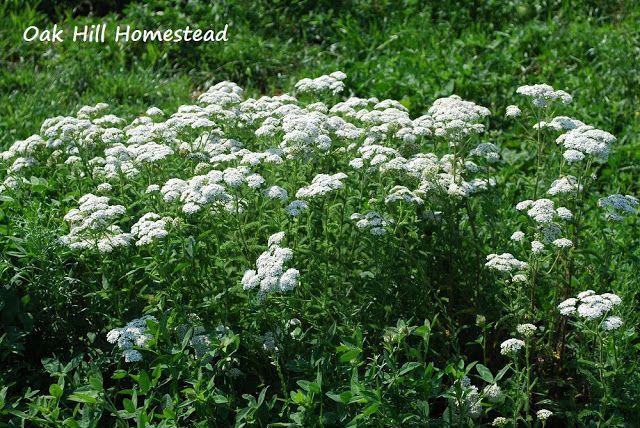Case Study: Yarrow Toxicity
Incident
 This past spring, we went on an emergency farm call for a horse who had suddenly developed poor coordination, dullness, lack of energy, and poor appetite. Upon examination, it also had a yellow discoloration to the gums and whites of the eyes. Most likely, the horse was suffering from some sort of toxicity resulting in liver failure and neurologic signs. The owner had made no recent feeding changes and no other animals in the pasture were affected. What was going on here?
This past spring, we went on an emergency farm call for a horse who had suddenly developed poor coordination, dullness, lack of energy, and poor appetite. Upon examination, it also had a yellow discoloration to the gums and whites of the eyes. Most likely, the horse was suffering from some sort of toxicity resulting in liver failure and neurologic signs. The owner had made no recent feeding changes and no other animals in the pasture were affected. What was going on here?
Diagnosis
A simple walk around the pasture gave us the answer. A green, fern-like plant (with leaves fairly similar to bracken fern) was growing in the pasture, and did not appear to be something a horse would normally eat. It had no flowers at this point in the spring, but there was evidence that someone had been nibbling on the plant.
With further research, the name of the culprit was discovered: Common Yarrow (Achillea millefolium). This perennial herb can be found throughout the United States and persists from spring to fall, with white-yellow flowers produced from mid-summer to early fall. The leaves and stems contain glycosides and the alkaloid achillain – both of which can be toxic to the liver in horses.
Liver toxicity renders the liver nonfunctional, and its basic duty to clear normal toxic products produced in the body can no longer be accomplished. Thus, we see icterus – yellow coloring to tissues that are normally pink or white. These products reach the brain and also disrupt its normal functions, resulting in incoordination and mental dullness. Unfortunately, there is no treatment beyond supportive care, and the result is often death. Prevention is the best method!
Prevention
Common yarrow is not something horses would normally eat in a pasture with plenty of good forage. Most would only resort to that if there were nothing else available to munch on. However, it is a good idea to keep a close watch on what is growing in your pastures and hayfields. If yarrow is found, it is recommended to spray with weed killer, rest the pasture, and replant it to eliminate the threat to your horses’ health.
Signs in addition to those mentioned above that may signal liver toxicity include: aimless walking, yawning/sleepiness, and chewing motions. Common names of other plants toxic to horses that can cause similar signs include: ragwart, houndstongue, cocklebur seeds or seedlings, and Alsike clover.
This article was written by Veterinary Extern Heather Soloman.
